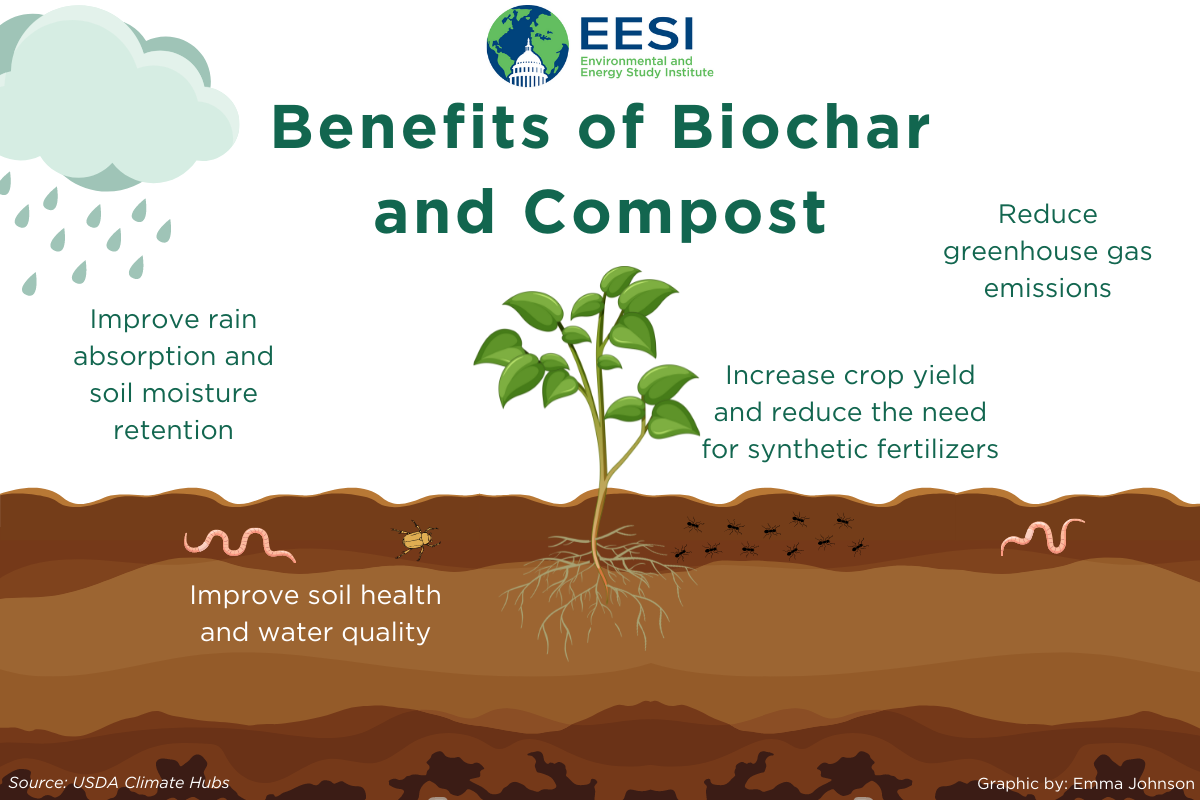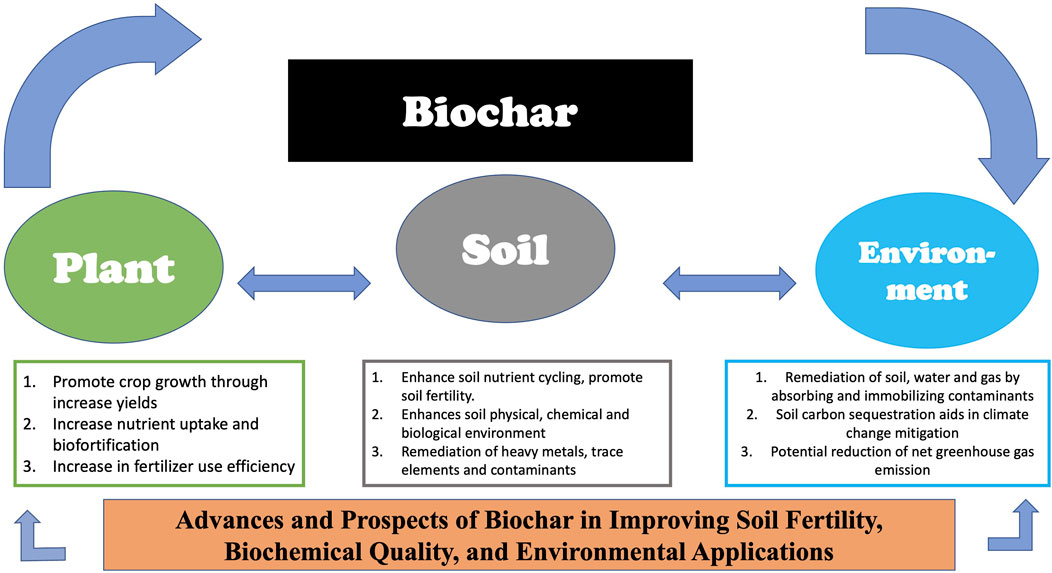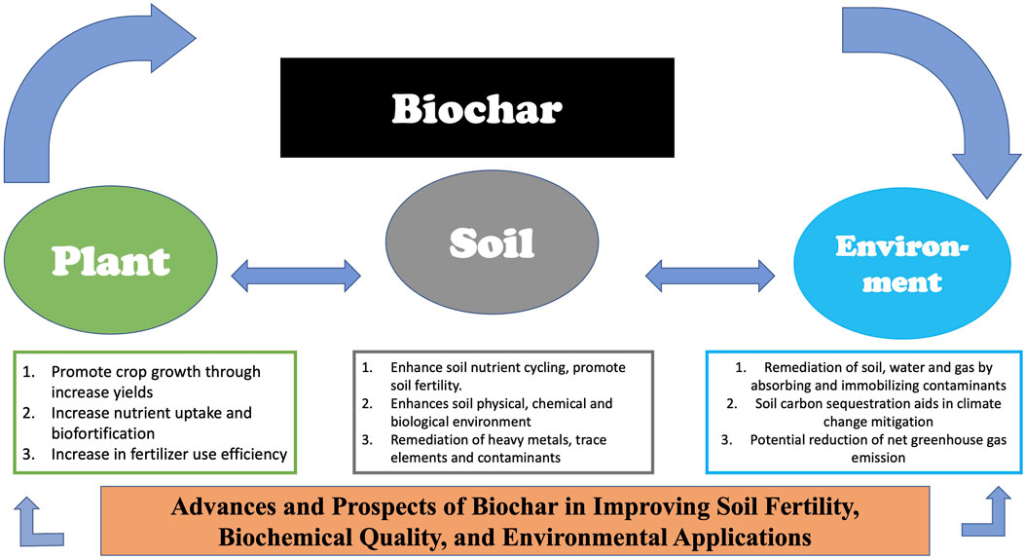Imagine transforming your garden into a thriving oasis with a simple, natural ingredient: biochar. This incredible substance has the potential to revolutionize the way you care for your soil, boosting its health and productivity like never before.
You might be wondering, what exactly is biochar, and how can it help your garden flourish? Well, you’re about to discover a powerful tool that can enhance nutrient retention, improve soil structure, and support microbial life. As you read on, you’ll uncover the secrets to using biochar effectively, ensuring your soil becomes a robust foundation for plant growth.
So, if you’re eager to give your plants the best start and want to explore sustainable gardening practices, keep reading to learn how biochar could be your garden’s new best friend.

Biochar Basics
Biochar boosts soil health by improving water retention and nutrient availability. Mix it into your garden soil. Plants benefit from enhanced growth and resilience.
Biochar is a fascinating, eco-friendly material that can significantly boost your garden’s soil health. It’s made from organic materials like wood chips or plant waste, which are burned in a low-oxygen environment. This process turns the material into a stable form of carbon that can benefit your soil for years. Understanding the basics of biochar can help you harness its full potential. ###What Is Biochar?
Biochar is a type of charcoal that’s used in agriculture to improve soil quality. It has a porous structure that allows it to retain water and nutrients, making them available to plants. This makes it an excellent addition to your garden, especially if you have sandy or nutrient-poor soil. ###How Is Biochar Made?
Biochar is produced through a process called pyrolysis. Organic materials like crop waste or wood are heated at high temperatures in a low-oxygen environment. This process turns them into a stable form of carbon, which can be added to soil to enhance its properties. ###The Benefits Of Using Biochar
Biochar improves soil health by increasing water retention, enhancing nutrient availability, and promoting microbial activity. When I first used biochar in my garden, I noticed healthier plants and higher yields. It provides a long-term solution to soil fertility, reducing the need for chemical fertilizers. ###How To Apply Biochar To Your Soil
To use biochar, mix it into your soil at a depth of about 6-8 inches. You can add it directly to your garden beds or mix it with compost for enhanced benefits. Start with a small area and observe the changes before applying it more widely. ###Common Mistakes To Avoid
Avoid using too much biochar, as it can upset the pH balance of your soil. Test your soil before and after applying biochar to monitor changes. Also, ensure your biochar is properly activated by mixing it with compost or a nutrient-rich material. ###Is Biochar Right For Your Garden?
Consider the specific needs of your garden before using biochar. Do you struggle with poor soil quality or low water retention? If so, biochar might be the game-changer you need. However, remember that it’s just one tool in your gardening toolkit.
Benefits For Soil Health
Biochar, a natural amendment, offers numerous benefits for soil health. Made from organic materials, it enhances soil structure, boosts fertility, and supports microbial life. By using biochar, gardeners and farmers can significantly improve soil quality. It’s a sustainable method to enrich earth and promote healthy plant growth.
Improves Soil Structure
Biochar adds porosity to the soil, improving aeration. This helps roots breathe and grow stronger. Water drainage is also enhanced, preventing waterlogging. Compacted soils become loose, allowing better root penetration. These changes lead to healthier plants and increased crop yields.
Enhances Nutrient Retention
Biochar acts like a sponge, holding nutrients. It prevents leaching, keeping nutrients available for plants longer. This reduces the need for chemical fertilizers. Nutrient-rich soil supports robust plant growth. It ensures plants receive essential minerals for development.
Boosts Microbial Activity
Biochar provides a habitat for beneficial microbes. These microbes play a key role in nutrient cycling. They break down organic matter, releasing nutrients to plants. Healthy microbial life leads to improved soil fertility. This creates a thriving environment for plants.
Increases Soil Ph
Biochar can raise soil pH, reducing acidity. Acidic soils can limit plant growth. Adjusting pH creates a balanced environment. This makes nutrients more available to plants. It results in healthier, more productive gardens.
Reduces Greenhouse Gas Emissions
Biochar sequesters carbon, reducing greenhouse gases. This helps mitigate climate change effects. By storing carbon in the soil, biochar contributes to a sustainable future. It’s an eco-friendly approach to improving soil health.
Application Techniques
Biochar is a powerful soil amendment that enhances soil health. Proper application techniques ensure its benefits are fully realized. Learn how to apply biochar effectively for optimal soil improvement.
Broadcast Application
Spread biochar evenly over the soil surface. Use a rake to mix it into the topsoil. This method enhances soil structure and nutrient retention.
Trenching
Create trenches in the soil, then fill them with biochar. Cover with soil after filling. This technique improves root growth and moisture retention.
Spot Application
Apply biochar directly to planting holes or around plants. Focus on areas needing specific improvements. Spot application targets problem areas effectively.
Mixing With Compost
Combine biochar with compost before application. This blend enriches soil with nutrients. Mixing enhances microbial activity and plant growth.
Liquid Biochar Application
Dilute biochar in water for liquid application. Spray or pour onto the soil. This method allows for even distribution and quick absorption.
Each technique offers unique benefits for soil health. Choose the method that suits your needs and soil condition. Proper application ensures biochar’s full potential is realized.
Expert Tips For Success
Improving soil health with biochar requires careful consideration. Experts share valuable tips to ensure success. These insights help harness biochar’s full potential. By following these tips, gardeners can boost soil vitality.
Understanding Biochar’s Role In Soil Health
Biochar enhances soil structure and nutrient retention. It provides a habitat for beneficial microorganisms. This improves soil fertility and plant growth.
Choosing The Right Type Of Biochar
Different biochars suit different soils. Choose biochar based on soil type and plant needs. Consult with local experts for advice.
Proper Application Techniques
Mix biochar into the soil to a depth of 6 inches. This ensures even distribution and better results. Avoid applying biochar directly on plant roots.
Combining Biochar With Organic Materials
Pair biochar with compost or manure for enhanced benefits. This combination improves nutrient availability. It also boosts microbial activity.
Monitoring Soil Ph Levels
Biochar can alter soil pH levels. Test soil pH before and after adding biochar. Adjust other soil amendments as needed.
Assessing Moisture Retention Capabilities
Biochar improves soil’s water-holding capacity. Monitor soil moisture regularly. Adjust irrigation practices accordingly.
Evaluating Long-term Effects
Biochar continues to benefit soil over time. Observe changes in soil health and plant growth. Make adjustments as necessary.

Conclusion
Biochar improves soil health by enhancing nutrient retention. It helps soil breathe better. Water drainage improves, reducing erosion. Plant growth gets a boost with biochar’s help. Your garden looks healthier and thrives. Biochar reduces the need for chemical fertilizers. It promotes a sustainable approach to gardening.
Simple to apply, biochar is a natural soil enhancer. It supports a balanced ecosystem in your garden. You can start small and see changes quickly. Biochar offers a practical way to enrich your soil. Try it, and watch your garden flourish.


